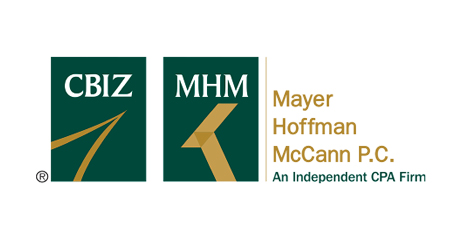By Todd Gordon
A recent accounting industry conference, The AICPA Conference on Current SEC and PCAOB Developments, brought together regulators and accounting industry associations for a discussion. While designed for public conferences and SEC registrants, themes from the conference also speak to some broader stories we can expect to develop this year, from trends in the role of the accountant to macroeconomic issues and accounting updates that may be on the horizon.
Emerging Technology
Companies and their accountants continue to delve more into digital assets and cryptocurrencies, and the accounting industry is working hard to catch-up. Conference speakers, which included representatives from the AICPA and SEC noted that digital assets required more accounting analysis and effort to account than anticipated. As a response, the AICPA is supporting a number of initiatives to help CFOs and their finance teams understand this brave new world of digital asset and cryptocurrency management. These initiatives include a digital asset working group and virtual currency taskforce.
Emerging technology also holds implications for the audit. How auditors can best use artificial intelligence (AI), machine learning and robotic process automation to review their clients’ financial information continues to be a point of discussion among the industry.
Regulators also noted that as management teams turn their attention toward cybersecurity-related risk management controls, the disclosures over these controls have been improving.
LIBOR
If the 2019 AICPA Conference on Current SEC and PCAOB Developments had a takeaway quote, it might be a comment a speaker made about the loss of the London Inter-Bank Offered Rate (LIBOR): Hope is not a strategy.
The benchmark interest rate will be going away 2021, which may require companies to review their debt agreements. Many variable interest rate arrangements, including mortgage payments, car and student loans, may use the LIBOR as a benchmark, and those arrangements will need to be revisited. Regulators at the conference expressed concern that businesses and financial institutions have not sufficiently addressed the consequences that the loss of the LIBOR rate could have on their operations.
Economic Fluctuation
When the Federal Reserve lowered interest rates in 2019, talk arose of the cuts being the first signs of the country entering another recession period. By many accounts, the definition of a recession includes two consecutive quarters of negative GNP caused by a significant unexpected and negative shock to the economy. Analysts had been concerned that macroeconomic events including Brexit, international trade disagreements, and fluctuations in monetary policy (primarily taking place outside of the U.S.) would result in that negative shock to the economy.
As of yet, that has not been the case. It does not appear that a recession by the standard definition is on the horizon. Short-term economic trends have been harder to predict in recent years and CFOs should continue to monitor the ever-changing economic landscape.
Accounting Changes
Several accounting updates may be coming in 2020, including changes to hedge accounting guidance to address accounting for forecast transactions. There may also be additional business combination guidance and updates around classification of debt. One provision of particular note involves an accounting standard update proposal around debt and equity determinations.
The Financial Accounting Standards Board (FASB) has an item on its agenda designed to reduce the cost and complexity of a convertible instrument in an entity’s own stock. The proposal would involve consolidating the five models in current U.S. Generally Accepted Accounting Principles (GAAP) down to two.
In the interim, the main points of interest for CFOs and their finance departments will be on the updates to credit loss impairment, which for public companies are in effect in 2020 and for private companies in calendar year 2023. Leasing changes in ASC Topic 842 also remain a focal point for private companies, which are slated to adopt the changes in calendar year 2021. Public companies adopted in the 2019 calendar year.
For More Information
For comments, questions, or concerns about the accounting trends that could affect your organization in 2020, contact us.
About Todd Gordon
Todd Gordon, CPA, is the Attest Practice Leader and Shareholder of the Salt Lake City MHM office and a Managing Director of CBIZ MHM, LLC. He has over 22 years of public accounting experience and has led engagement teams performing the audits of both public and privately held companies. Email: tgordon@cbiz.com
